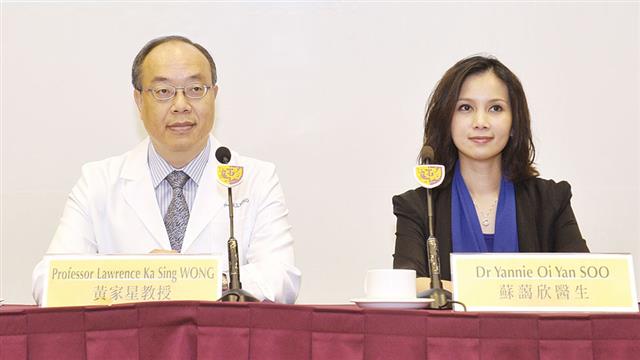A recent research conducted by CUHK showed that short-term dual anti-platelet therapy (especially using clopidogrel and aspirin) is more effective than single anti-platelet agent in preventing recurrent stroke, heart attack and death among Transient Ischaemic Attack (TIA) and minor stroke patients. The research results have been published on the website of the renowned medical journal Circulation on 12 September.
Transient Ischaemic Attack (TIA) is a mild and reversible form of stroke with a shorter duration of symptoms (< 24 hours). About 15% to 26% of strokes are preceded by TIA. Conversely, about 15% of TIA patients develop stroke within three months, with half occurring within 48 hours. Therefore, early treatment is essential in preventing recurrent stroke.
In 2010, the Division of Neurology of the Department of Medicine and Therapeutics, led by Prof. Wong Ka-sing Lawrence, Mok Hing Yiu Professor of Medicine, successfully demonstrated that the combination therapy of clopidogrel and aspirin was effective in reducing microembolic signals in stroke patients. Professor Wong's team has recently completed a meta-analysis combining the results of the above study in other stroke centres in the world. The analysis showed that the combination therapy significantly reduced the risk of recurrent stroke by 31% and the risks of vascular events or death by 29%. The combination of clopidogrel and aspirin was the most commonly used therapy among the trials studied.
For details, please click here.



